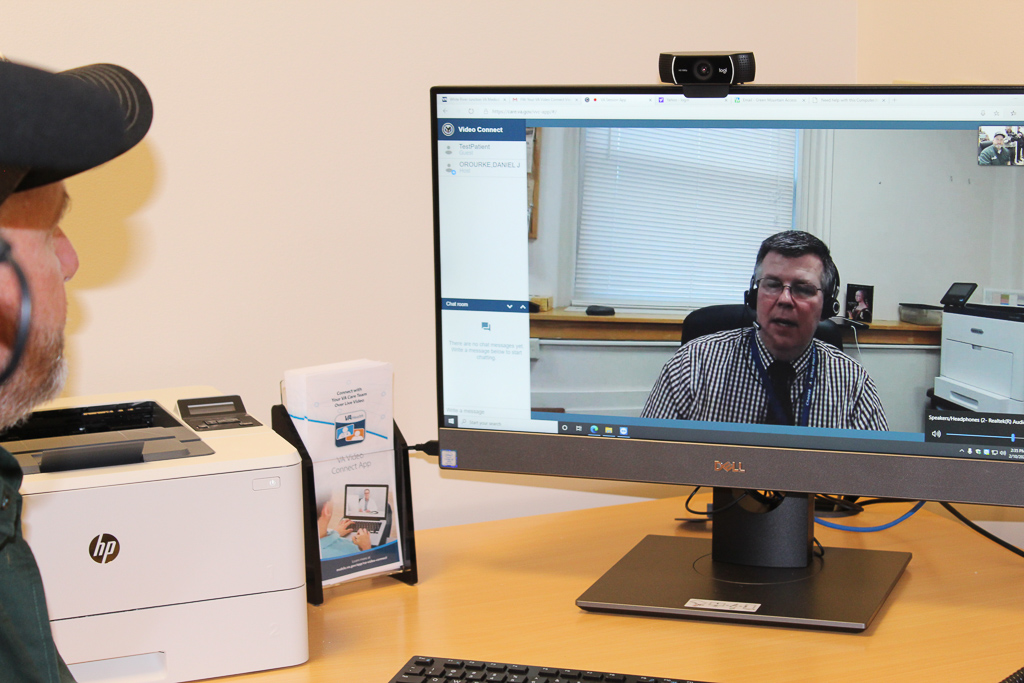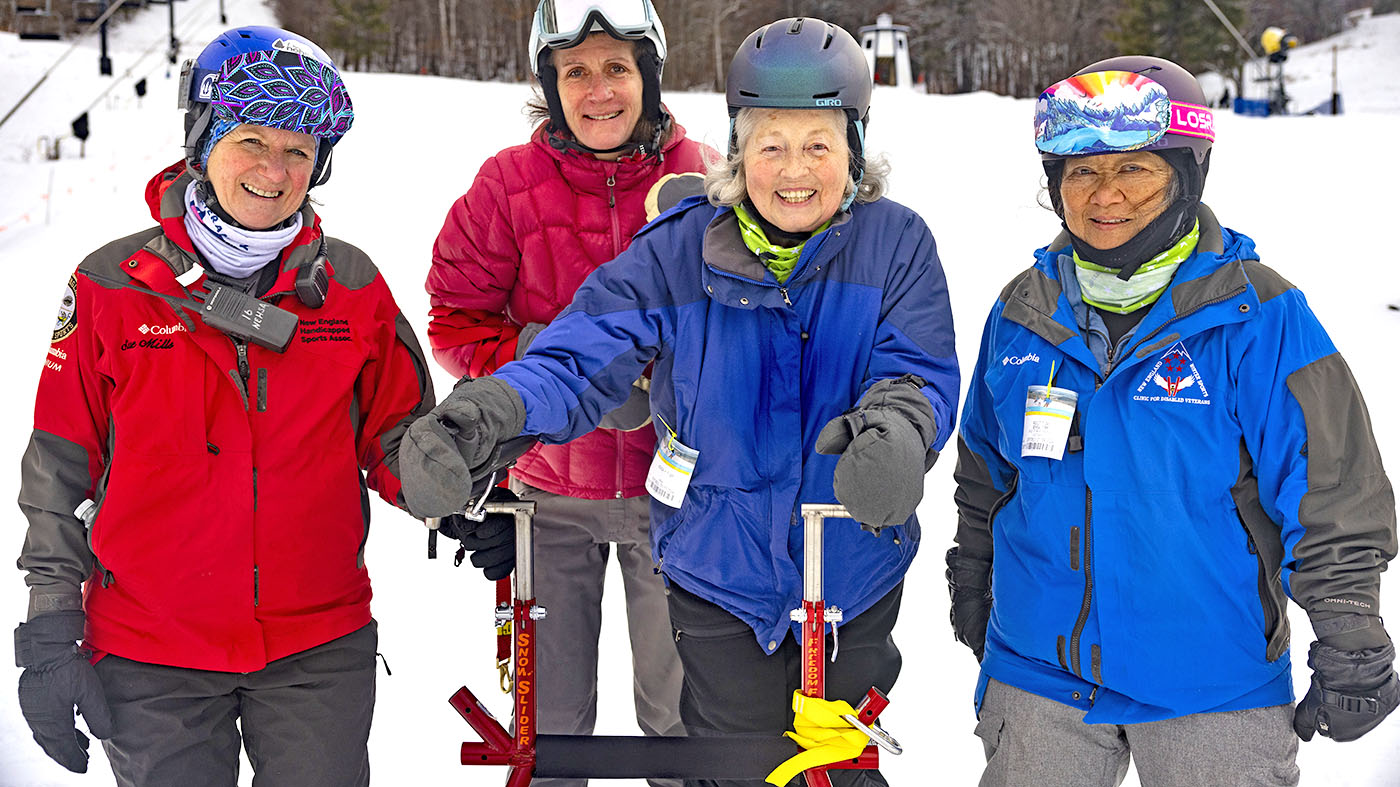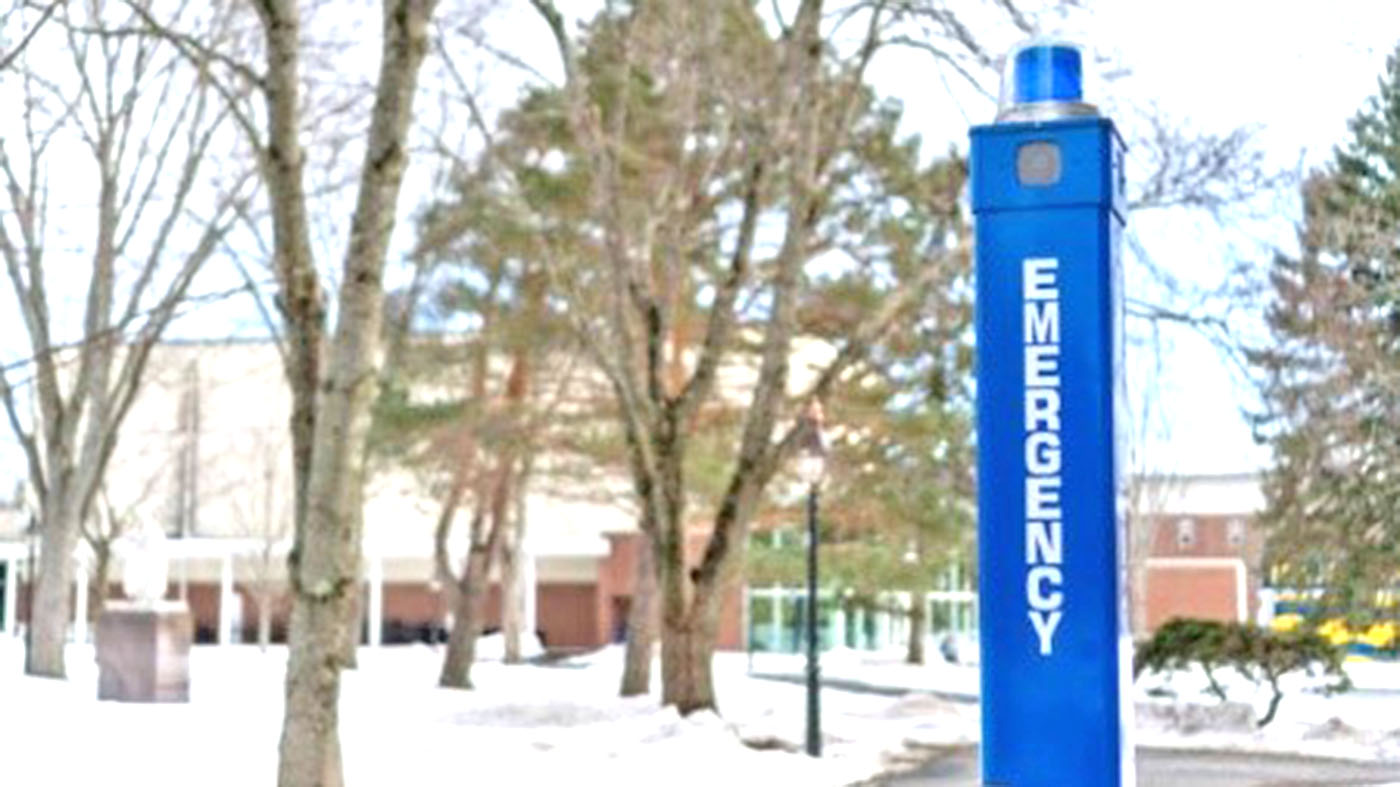Veterans in rural Vermont now have a “Virtual Living Room” to connect with VA health care, thanks to a partnership between the White River Junction VA Healthcare System and several community organizations.
Located at the American Legion Post 19 here in Addison County on the foothills of the Green Mountains, Veterans can now speak by video link with their VA health care providers from a private room, also known as the “VLR.”
The VLR is a big step in easing the challenges many Veterans face in rural communities like those in Vermont.
The White River Junction VA Healthcare System partnered with The Foundation for Rural Service, CoBank, Post 19, Waitsfield and Champlain Valley Telecom to open the VLR, a dedicated space for Veterans to access VA health care.
Transportation and access issues necessitate creative solution
In Vermont, thousands of Veterans need transportation assistance to get to and from medical appointments. Those appointments are often many miles away–at either the White River VA Medical Center or at satellite community-based outpatient clinics.
In the winter, it can be especially difficult for Veterans traversing the state’s rolling and mountainous terrain.
On the day of the ribbon cutting earlier this month, a fresh blanket of white snow more than a foot deep from a previous snowstorm welcomed community leaders and local Veterans to the American Legion.

Tina Kebalka, White River Junction VA’s telehealth coordinator, instructs a Veteran on how to VA telehealth during a demonstration at the new Virtual Living Room at the American Legion Post 19 in Bristol, Vt. Photo by Katherine Tang, public affairs officer, White River Junction VA Healthcare System.
“If anybody was here last Friday (during the snowstorm) and you had an appointment (at the VA hospital in White River Junction), you certainly would have been happy if you could have done it here at the Virtual Living Room,” said Gulf War Veteran Todd Garthaffner, one of several speakers at the VLR’s grand opening.
Garthaffner is a supervisor at Waitsfield & Champlain Valley Telecom, which helped install the fiber optic internet service to make the VLR connection possible for Veterans to speak with VA providers.
VA New England officials believe the VLR will help VA medical staff with ensuring Veterans in some of the most rural areas of New England receive the care they’ve earned and deserve.
Improving rural access to care
The VLR has its roots after national VA rural health leaders addressed the need to bring broadband technology to rural locations in areas just like Addison County, Vermont.
“This is a great example of how crucial community partnerships are in meeting the needs of veterans in our rural communities,” said Dr. Brett Rusch, MD, director of the White River Junction VA Healthcare System. “The Virtual Living Room will be a welcome and vital resource for our veterans struggling to access care from more remote communities.”
Veterans will be able to call the American Legion Post to set up an appointment at the VLR to use VA Telehealth connections using the room, which has a soundproof door, soundproof walls and an acoustic ceiling, thanks to a local contractor, Sweeney Construction in nearby Lincoln.
Once inside the room, Veterans will use a computer to log into a secure connection with a VA help desk and receive assistance to link up on a video call with their VA health care providers.
“There may be a shortage of medical and behavioral providers in their community, and the nearest VA facility is too far away,” said Tina Kebalka, White River Junction VA’s telehealth coordinator. “Perhaps they lack a home internet connection or there are no broadband services in the community to support the option of telemedicine. The Virtual Living Room provides a viable, promising resource for area rural veterans to gain critical access to a broad range of medical and behavioral health care.”
Community gives back
Navy Veteran Eric Haskin understands firsthand the challenges Veterans face when seeking health care that may be several hours away. As president and CEO of Waitsfield and Champlain Valley Telecom, he was pleased his company could be a key community partner in making the VLR possible.
“This is one way we can give back to our local communities and support our veterans by leveraging our gigabit fiber-optic network to help expand access to the VA’s ever-expanding telehealth initiatives,” said Haskin, who served on the aircraft carrier USS Constellation.
John Paradis is a senior editor & writer at the VA New England Healthcare System
Topics in this story
More Stories
After Addison’s Disease and lumbar spine surgery, nurse Veteran Gayle Smith re-learned how to ski. “You have more courage than you think.”
Follow these 10 winter safety tips to stay warm, safe and protected during the cold winter.
Forget 'No Pain, No Gain'—try 'No Pain, More Gain' with Tai Chi! Calm the mind and gift yourself well-being in this week's #LiveWholeHealth practice.







Hi,
But the vets still have to travel to the post, don’t they? Is this really a solution?
Would it be more cost-effective to put the VA’s considerable pressure to bear on localities to provide broadband internet service to all, including rural vets, and perhaps help them in navigating the process?
There is a federal push to expand rural and small community high-speed broadband, so each community should be taking advantage of applying for match grants from the states that are available to do it. It is a competitive process that works in phases. It is available first for communities that have no high-speed broadband and second to those that are not sufficiently served. That’s how it’s working in Indiana…
Check on the FCC’s website.
Thanks